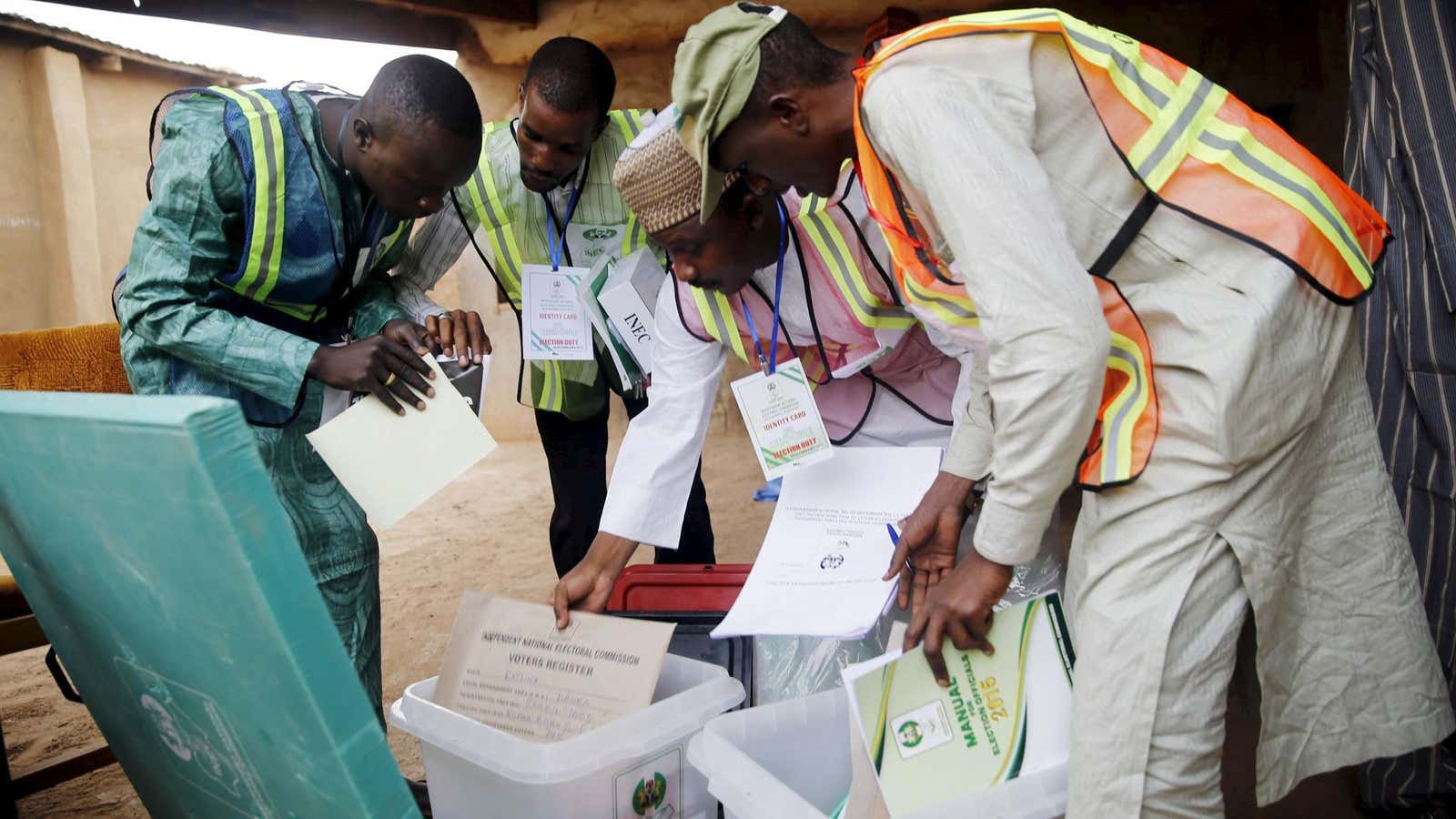*Updated with details from INEC chairman
Nigeria will not be deciding its next president today (Feb. 16) as previously planned.
Owing to difficulties distributing voting materials, the country’s electoral commission, INEC, is postponing the polls by a week. According to reports, the elections could not possibly have progressed as scheduled given anticipated shortages of voting materials, especially ballot papers, in some states.
The presidential and national assembly elections will now be held a week later on Saturday Feb. 23.
INEC announced the decision at 2.30am local time on Saturday after a late night emergency meeting with just hours polls due to open on Saturday.
INEC chairman Mahmood Yakubu speaking at the early morning press conference said the “difficult decision” had been made after reviewing the commission’s preparations and “following a careful of the logistics and operational plan” the commission came to the conclusion that proceeding as scheduled was “no longer feasible”.
Indeed, despite several assurances of its readiness for the vote, INEC has faced difficulties over the past week with two of its offices have been gutted by fire in suspicious incidents.
Talk of postponement comes after months of tense campaigning by the two leading candidates incumbent president Muhammadu Buhari of the ruling All Progressives Congress (APC) and main challenger, Atiku Abubakar of the opposition People’s Democratic Party (PDP). But there are more than 70 candidates overall contesting to lead Africa’s largest democracy which has 84 million registered voters.
The move to shift the election will cause major disruption to Nigerians’ lives, most of whom will only learn of the decision when they wake up on Saturday morning. Due to security and electoral fraud concerns most of the country has already been prepared to shut down from 6am to 6pm local time in many states, with vehicular traffic prohibited in those hours.
Nigeria has had last minute and late delays in previous elections. In 2015, the poll was shifted by six weeks due to security concerns at the peak of the Boko Haram insurgency. In 2011, the presidential election was delayed by a week after outbreaks of violence and claims of potential electoral fraud.
Sign up to the Quartz Africa Weekly Brief here for news and analysis on African business, tech and innovation in your inbox
